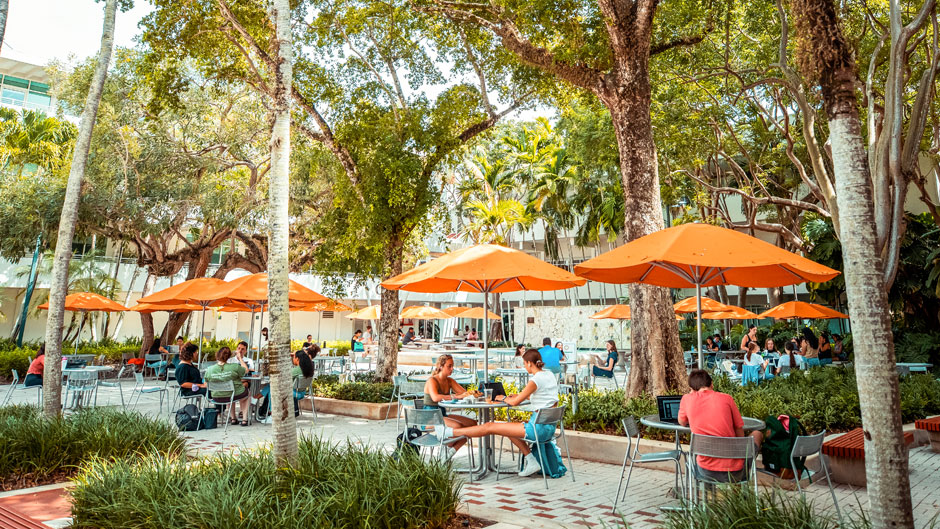Brian Sites, associate director of the Academic Achievement Program at the University of Miami School of Law, has always been fascinated with how technology impacts the teaching and the study of law.
The interest stems from his days as a law student at Florida State University. When graduating in 2007, he took a self-guided bar prep course that focused on software-based multiple-choice questions. Over the years, Sites said that he has always wondered, as have many who study bar passage practices, "How much does bar-focused coursework during the three years of law school affect the 500-plus hours of study over 10 weeks of postgraduate bar prep?"
He may be getting closer to answering that question thanks to a $300,000 grant the School of Law received from the nonprofit group AccessLex Institute, which seeks to help students along their path to becoming lawyers.
The institute's Bar Success Research Grant Program funds well-designed studies of the bar examination. The School of Law's study, "The Relationship Between Curriculum Selections and Bar Exam Sub-scores," will analyze the relationship between enrollment and performance in courses in bar-tested areas and success rates on the bar examination.
"We greatly appreciate this support from AccessLex," said David Yellen, law school dean, and M. Minnette Massey Professor of Law. "The data generated will undoubtedly help us shape the educational experience at Miami Law in ways that will maximize student success on the bar exam and will provide valuable insights for law schools around the country."
Sites is the consummate candidate to lead the study. He came to the University of Miami after seven years at Barry University's Dwayne O. Andreas School of Law in Orlando, Florida, where he rose from the position of a tenure-track professor to assistant dean for bar preparation, academic success, and experiential learning. Later, he also was faculty administrator of bar preparation.
According to Sites, Florida is an ideal state for this work given the number of subjects Florida's bar exam tests and because The Florida Board of Bar Examiners reports to bar takers their sub-scores in those subjects. The information allows for comparisons between taking specific courses—such as wills—and performance on that subset of bar questions. Additional items such as GPA, LSAT score, transfer status, and many other factors will also be studied.
"Miami Law is a large school, which is part of why it makes sense for this study," said Sites. "We are talking about looking at hundreds and hundreds of courses for three years of law school for hundreds and hundreds of students and comparing that with an equal number of data points that students create during their postgraduate bar prep."
The School of Law often has the largest or second-largest number of examinees taking the Florida bar exam among Florida schools. Sites said the study will rest on a broad empirical foundation. The school is diverse in many ways, enhancing the study's utility. For example, the School of Law's 2022 J.D. class consists of students from 35 states/territories and 10 countries. It has 46 percent minority representation, includes 70 percent first-generation law students, and ages ranging from 20 to 42.
The school also has dozens of international attorneys who complete a hybrid LL.M./J.D. program, Sites pointed out, and they will add even more diversity.
"The information from our study will be used to not only help students pass the bar but make the road to passing the bar less stressful and more successful," Sites said. "We don't just want students passing the bar. We want them passing on the first attempt with as little anxiety as possible, because the bar is a tremendously demanding and onerous—but important—undertaking."

